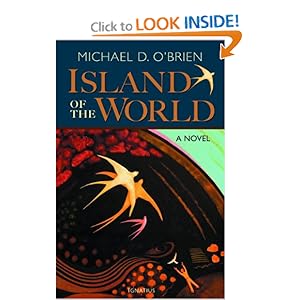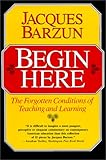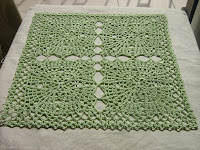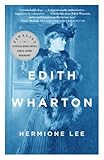I am a most unfaithful blogger. Thank goodness nobody gives you little award buttons that say so. Not that it would matter if they did. Bloggers like me aren’t exactly sure how to make cute buttons and linky-things appear in the sidebar. If we did, we wouldn’t be such bad bloggers, and it takes all kinds to make a blogosphere, don’t you think? Bloggers like me allow you to appreciate those good bloggers all the more, I’m sure.
Nevertheless, I can’t resist popping in here to share my “most interesting books of 2011” and linking up to Semicolon’s year-end wrap-up. There is no special number here--I’m not limiting myself to 10 or 12 or 25. I’m not going to tell you how many books I read, or how they fall out into categories. That’s a secret. No, really, it is. Even I don’t know.
These are the books that, as I think back over 2011, have stuck with me. These are the ones that made a difference for me in 2011, or held my attention, or made me laugh. You really don’t want to know how many books I read that didn’t make a difference at all (and neither do I). I don’t remember most of them, because they aren’t worth remembering! This is a list of the good stuff, the books I’d offer a friend.
 The Island of the World
The Island of the World
by Michael D. O’Brien--This was one of the first books I read in 2011--a wonderful gift--and something
I blogged about at the time.
 A Long, Long Time Ago and Essentially True
A Long, Long Time Ago and Essentially True
by Brigid Pasulka --This book was of particular interest to me, because it takes place not only here in Poland, but mostly in Krakow. It spans several lifetimes, from World War II to the early 1990s--those first years after Poland shrugged off communism and was struggling to find her feet. I caught the very end of that era in 1997. Things have changed a great deal in the nearly 15 years I’ve lived here. This book is a family saga--full of the love and struggles that make for a good family story--and the background history of Poland is a bonus.
 Lawendowy Pyl
Lawendowy Pyl by Danuta Marcinkowska, Ewa Marcinkowska-Schmidt and Klaudyna Schmidt.
This is another family story, spanning the exact same era. However, this book is written in Polish (and I’m actually not finished with it yet). It is also “essentially true,” but is written as fiction, with altered names, because some of the people in the story are still living and were not consulted. Nevertheless, it is the real story of a real family, told by three generations of women, and they’ve included lots of family photographs. The war...the Stalin years...the shortages...Martial Law...it’s all there. I hesitate to mention it, because I don’t think it will be translated, but it fits the criteria for this list--it’s a wonderful book that has made a difference for me.
 Shades of Grey: A Novel
Shades of Grey: A Novel
by Jasper Fforde--I must say that I am not a huge fan of Fforde. The weird existentialism overwhelmed me when I read “Thursday Next,” and until this book (recommended by
Stephanie) I wasn’t willing to give him a try. But I am a glutton for a good dystopia story, and this one is intriguing and unique--a world in which “progress” is measured by backward steps (old spoons are shockingly precious), and society is highly stratified based upon an individual’s ability to see color. There will be sequels. I will read them.
This Perfect Day
by Ira Levin--This is an older dystopian story, rather well known. It isn’t quite as classic as
1984 or
Brave New World, but it does have
its own wikipedia page. I read this story through, and immediately started over and read it again. Then I read it two more times. I find it very difficult to articulate why it fascinated me so, but it did. One of the most poignant parts of the story, to me, is the great lengths two characters go through in order to learn a foreign language--for them, an unknown language--in order to be able to read books. Some of the technological elements in the story are dated--we’d never need bracelets to identify us to computers today, in this age of microchips and near-field scanners--but the extreme control of every aspect of life looms too close for comfort.
 RENA'S PROMISE: TWO SISTERS IN AUSCHWITZ
RENA'S PROMISE: TWO SISTERS IN AUSCHWITZ
by Rena Kornreich Gelissen with Heather Dune Macadam--One of my non-fiction reads, touching two areas of interest for me--biography and holocaust literature. This is a newer memoir (the author has since passed away), telling the story of Rena and her sister. Rena was a rare long-term survivor. She was on the first women’s transport into Auschwitz, and she survived the death march to Ravensbruck at the end of the war. Her story was as compelling as every survivor story I’ve ever read, but this memoir seems remarkable to me as much for what it does not include as what it does. Rena shared her story with Heather Macadam so it would not be lost, but I am convinced she left out a great deal. The truth is, you could only survive that long in Auschwitz by being ruthless. Rena chose not to tell that part of her story, but the parts that she does share are a tribute to her endurance, ingenuity, and determination.
The Old Manor House by Charlotte Turner Smith--Written in 1793, this is a strange Gothic story, by a nearly-forgotten author of the Romantic era. (She was known by authors such as Wordsworth and Southey.) It is most interesting to me for the picture it paints of a long-gone era of English life. This is Jane Austen’s world. Money and family govern the choice of marriage partners, not personal feelings. But what happens when real love does spring up? The main character goes to America to fight on behalf of the British, and Charlotte Turner Smith uses the setting of the American revolution to show her sympathy with the French revolution. I listened to this at
Librivox, and thus gained, over some time, 24 hours of crocheting time!
 Oh, Money! Money!
Oh, Money! Money! by Eleanor H. Porter--This is no Pollyanna! A wealthy bachelor needs to decide on an heir, so he gives a little money to his distant relatives to see which one will use it most wisely. But he can’t resist watching what happens from nearby, and as he gets to know them, he realizes what a dilemma he has created for himself. Besides the (rather predictable, but fun) main plot, there is a great deal of commentary here about the proper role of money in life, showing that both overspending and miserliness are poor substitutes for good stewardship.
 Vice Versa
Vice Versa by F. Anstey--Remember the movie "Freaky Friday?" This is a Victorian-era version of the same tale. An unhappy son is miserably contemplating his return to boarding school, when fate steps in and he and his father change places. He remains comfortably at home, while his father is packed off to school with the meager allowance he made his son all the money he has in his pocket. Naturally, they come to understand each other better, but the naughty son doesn’t really want to change back, and so Dad needs all his ingenuity to effect the switch (courtesy of a charmed stone brought from India by a relative).
No Name, by Wilkie Collins---I really love these Victorian-era tales that sprawl across chapters and months, drawing widely-flung threads together in a satisfying end. For a wonder,
I blogged about this one, too, if you want a closer look at the plot and characters.
A Way of Seeing by Edith Schaeffer--This is a non-fiction collection of short essays, most of which were originally published as columns in
Christianity Today (in the 1970s). I love the way Edith describes them: “This is what I was thinking about while I was washing dishes...” I liked most of them, but what was astonishing was how very, very apropos they are to today, in spite of some dated references. Some of the essays were written while Francis was filming his “How Shall We Then Live” series, and there are a few interesting references to that. I received permission to translate some of these into Polish, and that will be a project for 2012.
 Aurora Floyd
Aurora Floyd, by Mary Elizabeth Braddon--This is my second book by Braddon, after reading the better-known
Lady Audley’s Secret some time ago. Aurora is a spoiled, willful girl who does some very, very foolish things before she is out of her teens. Her whole life might have been spoiled, but it seems a fortuitous chance has given her an opportunity for something better, and she marries happily. When the dark shadow of her past re-emerges, she despairs. But would she commit murder to secure her safety? Someone certainly has committed murder, and suspicion falls upon Aurora from the beginning. I almost felt as if I were reading another Wilkie Collins during this story!
Can you handle a couple more?
 Olive Kitteridge: Fiction
Olive Kitteridge: Fiction
by Elizabeth Strout--Probably the only "prize winner" I read this year (I think I read a lot of junk--something I plan to rectify in the immediate future), and
wrote about at the time. I love a good character-driven story.
 Howards End Is on the Landing: A Year of Reading from Home
Howards End Is on the Landing: A Year of Reading from Home
by Susan Hill. This is a book about books and reading--
I gleaned many potential titles and authors that I wanted to pursue while I read it. Maybe I'll get to one or two of them in 2012!
And that's it--the best of 2011, gleaned from dozens of titles, most of which were forgotten as soon as I finished them. I admit to being somewhat disgusted with myself, and I hope to do better next year. That is, I intend to plan my reading time more carefully, and read more purposefully. There will be moments of light reading when I just want to escape, but I hope that will be the smaller part of the list next year. I hope.
Sneak Preview: I'm currently reading the newest Jostein Gaarder!!!
Castle in the Pyrenees....stay tuned. I might even blog about it.


























